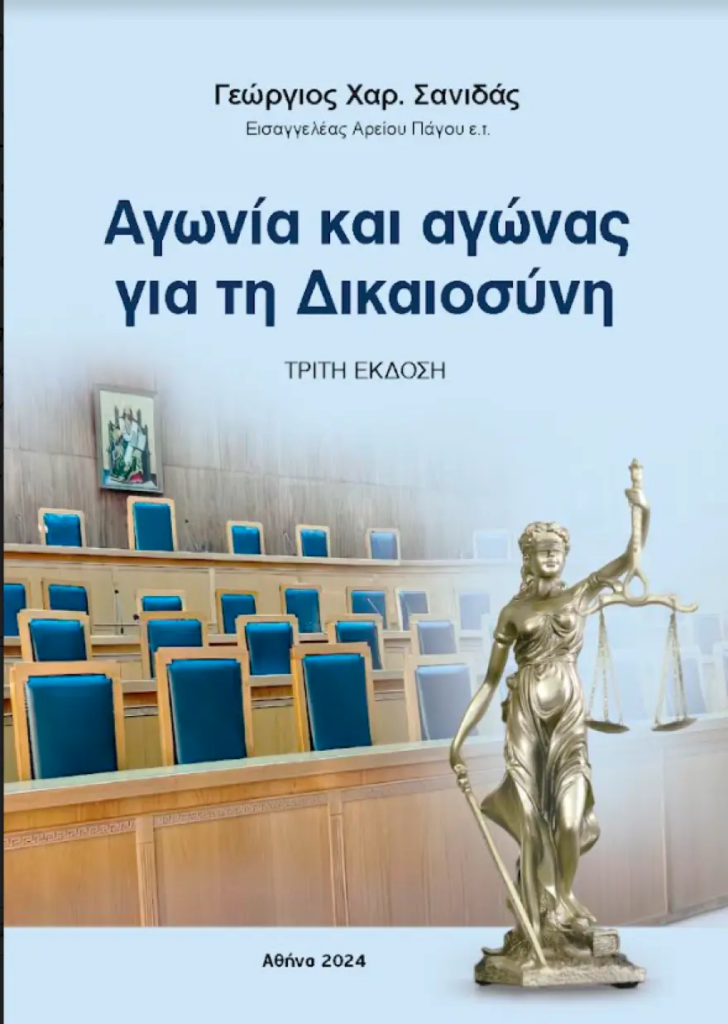The third edition of the book “Agony and Struggle for Justice” by former Supreme Court Prosecutor Giorgios Sanidas has been released, following the complete sell-out of the first two editions (2011 and 2012).
In the preface of the new 482-page edition (published by Stamoulis, Averof 2, Athens), the author emphasizes that “this edition has been supplemented with new information concerning the further development of certain cases already mentioned, as well as with other new material.”
It’s worth noting that in the previous editions, Mr. Sanidas highlighted several key points:
“The book recounts elements of significant cases that preoccupied me until I was appointed the Prosecutor of the Supreme Court. It then addresses the judicial corruption scandals and their causes, without, for ethical reasons, offering opinions on the outcomes of those cases. Lastly, it presents many of the actions, interventions, and speeches I made during my tenure as Supreme Court Prosecutor. Along the way, I intersperse my comments, judgments, and thoughts on these cases and my actions, as well as on the broader issues of justice and its challenges.”

In this third edition, the author notes:
“Twelve years have passed since the second edition of this book. Friends and colleagues have repeatedly encouraged me to republish it due to its usefulness, given that its content, among other things, generally covers the way the justice system has operated over approximately 40 years: its weaknesses, lack of infrastructure and technical equipment, and the challenging conditions under which it functioned. These deficiencies were compensated for by the diligent efforts and hard work of the majority of judicial officers and secretaries.
Thus, I decided to proceed with this new edition, hoping that its content will be useful both for younger judicial officers, especially prosecutors and for future historians.
This edition has been updated with new information on the further development of certain cases mentioned previously, as well as other new material.
I hope that the reasons that led me to republish this work will be justified.”
Ask me anything
Explore related questions





